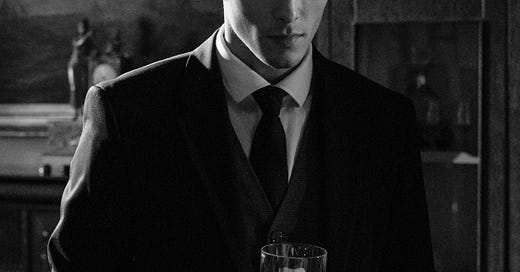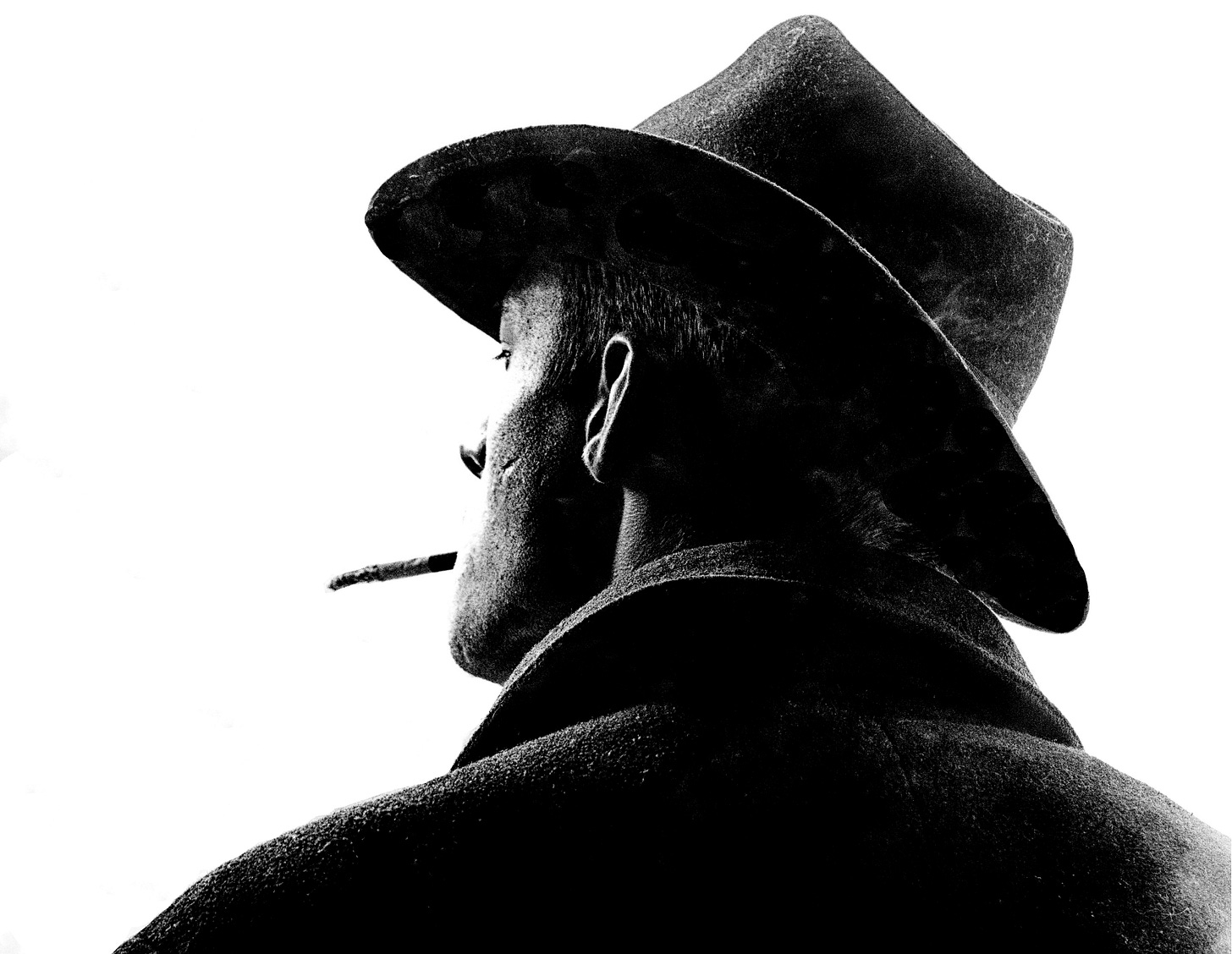Only yes answers count:
You think blackmail is such an ugly word.
Your at-home outfit is a mandarin robe with tracings of dragons in gold thread.
You pontificate on people and their manners in a Clifton Webb tone of dry alcoholic distaste.
You wear black-out masks to sleep because your means of support is something cultural and parasitic like being a hateful theater critic, with openings and after-parties to demolish, way into the night, for your column, and so must turn day to night because you never wake before noon.
Your home itself is uninvitingly ARTISTIC, with mid-century markers of rarefied taste — Rococo armoires, Dali paintings, Cocteau scribbles, and rough-hewn busts of twisted faces crying out to heaven.
Like Vincent Price, you are tall and broad-shouldered in a suit, your tie and pocket handkerchief are impeccable and play off the color scheme of the jacket (that is, when you’re in Technicolor), and you tend to telegraph your true feelings, much to your woe, by narrowing your eyes and dropping your voice with a certain affected, fussy (dare we say nelly?) je ne sais quoi.
Like Bruno in Stranger’s on a Train, you wear mad ties and showy two-tone shoes in the Spectator, wing-tipped style, have eyes that twinkle when you’re suggesting the most deliciously insane schemes, and speak in a low, importuning tone to athletic men you bump into (never quite by accident) on public transportation, dogging their steps, eyeing them with the glee of a connoisseur specializing in men with elite, tennis-player bodies and the soft, beauteous face of a young Farley Granger, who stares back at the many wild, clever things you say with the sort of provocative alarm that begs to be dominated.
You love the theater (pronounced the-a-ter), despise the movies, and laugh at TV. “Television is nothing but auditions, my dear,” you tell a deflated Marilyn Monroe, whose sweet, child-like face and stacked figure must mean she’s vacant of the “music and fire” you demand in DRAMA. “A graduate of the Copacabaña School of Dramatic Arts,” you say of her once she leaves. Not that you would hesitate otherwise. Having no human warmth at all, you are equally bold about running your airy sarcasm in the face of a great star. “You were an unforgettable Peter Pan,” you intone to Margo Channing, knowing she’s obsessed with her advancing age. “You must play it again… soon.”
Clifton Webb — yes, her again — is a role model. “Young woman...either you have been raised in some incredibly rustic community where good manners are unknown or you suffer from the common feminine delusion that the mere fact of being a woman exempts you from the rules of civilized conduct.” This is you when confronted by the pretty, heart-shaped face of a Gene Tierney whom you are actually attracted to — strictly for the aesthetics, of course. You don’t want to love her so much as collect her. And you don’t let go of your possessions without a barrage of acid quips, raised eyebrows, and — because this is Noir and you are to the depths of your psyche a Noir creature, existing in the shadows, on the margins of things that are conscious — a blazing, cathartic exchange of gunfire.
If early in life you adopt a criminal alias as fantastically overcolored as “Joel Cairo,” if you have a Mittel European distaste for showers and cover this up by wearing an overpowering gardenia perfume that announces your arrival several swooning seconds before you enter a detective’s office — detectives, policemen, thieves being the interchangeable dramatis personae of your dodgy, histrionic life — if you pretend to the high life with a glass “ruby” fastening your cravat, a derby hat in your chamois-gloved hand, a soft much too intimate way of speaking ( but your shoes are clearly down on their uppers), if you are often slapped around and de-gunned by men of average size and strength (so often one might suspect that being knocked around was the point of pulling the gun) and if Mary Astor makes you scream when she bends back your manicured fingers with the polished fingernails, you should check this item CAPITOL Y CAPITOL E CAPITAL S.
No one dares call you “Danny” except that scamp George Sanders. You are Mrs. Danvers to all, a forbidding figure who is never seen entering or leaving a room. You just appear, standing there in complete stillness, slightly behind your charge, like a bad memory. You do not walk so much as glide on strange, monstrous limbs, hidden by long draping dresses that trail behind you like the mourning weeds of a bride of Dracula. They are your sisters in kind, for you exhale a sort of gloom that envelops all around you like fog. That’s how you rule, how you exert your will, by your sheer leaden presence alone. Obsessed? No, you are devoted, a Keeper of the Flame, tending to the lace undergarments — sewn, of course, by cloistered nuns — of your Lady, the true, the only Mistress of Manderley, the dashing, devastating, black-hearted Rebecca.
You’re a movie star, make a colossal salary, live in a magnificent ranch house with a pool, an army of servants, and Randolph Scott as your roommate (“to share the expenses.”) A villain? Only according to the professed mores of your time. In fact, you’re a beloved movie idol, for whom all is automatically forgiven because in America to be famous is to be forgiven everything. But almost a century later, you are—surprise! — an exhilarating hero of unashamed, unhidden gay identity. If only briefly. There’s Dyan Cannon and acid trips in the wings to “save” your transgressive stardust.
“No one can long hide behind a mask; the pretense soon lapses into the true character.” - Seneca The Younger
Photos: CottonBro (Pexels, Instagram); Wendy Corniquet (Pixabay, Instagram)
Yours truly,








